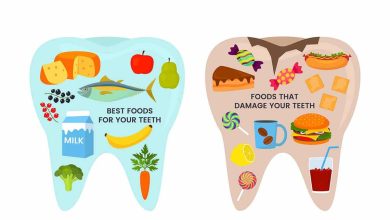How to Improve Effectiveness and Productivity of Night Shift Work

In the U.S., 15 full-time pool work shifts that do not follow a daily schedule put shift workers at an increased risk of prostration. And shift work puts vessels at a high risk of disorders, accidents, and miscalculations. In addition, numerous night and swing shift workers are employed in safety-sensitive areas such as transportation, healthcare, serviceability, mining, aeronautics, and manufacturing. Faced with excessive sleep during the day can make your body tired, and to eliminate that instability and stay awake, Waklert can help you better.
The symptoms of shift work complaints, such as dizziness and an inability to stay awake, significantly affect plant safety. And productivity puts your establishment at risk of accidents and miscalculations.
Sleep-deprived workers are more likely to commit crimes, take sicker leaves, and be reluctant to work. And suffer from short-term or long-term health problems (Bates). In addition, shift work and circadian disturbances have a negative impact on plant accidents, miscalculations, and productivity. Waklert 150 eliminates excessive sleep for this complaint.
Plan your night shifts
Indeed, on your days out, it’s a good idea to work in groups and keep to a sleep routine at night. It allows your body to handle a single schedule, so it does not have to acclimate constantly. According to one exploration, rotating shifts have dropped job satisfaction and worsened sleep quality and volume. And more frequent weariness among nurses. They were also more likely to suffer from internal and cardiovascular issues.
As a result, this may not be doable for everybody. Sleep in the morning, but get up in the autumn and keep moving until your typical bedtime if you want to get back into a routine following your final late shift of the workweek. Make the most of your power naps over the next few days. Also, on your last night out, stay up as late as you can and sleep. It may indeed be worth taking a long rest before starting work.
Make certain that your entire family is on board.
Get the support of your family and roommates. If you display your work and sleep schedule on the refrigerator, your family will notice. Every day, find a mess that you can eat with your family every day to keep in touch while you’re working.
Consume healthily
It would be beneficial if you ate healthily, as shift work has been linked to an increased risk of metabolic diseases. In addition to saving you time, and for plutocrats, preparing reflections and snacks ahead of time provides you with less control over your diet. Veggies and protein are essential factors in a healthy mess.
Whole fruit, trail blend, or a high-protein energy bar are more options for a quick pick-me-up than sticky treats. That can leave you feeling sleepy later on. Eating lower, more frequent meals can help you maintain a stable energy position throughout the day. Vitamin D deficiency may develop as a result of less sun exposure during the night shift. Therefore, night shift workers should think about taking a supplement.
Effective napping
A well-timed snooze during a night shift might help workers stay attentive and avoid making miscalculations. According to one exploration, nurses who work between night and 6 a.m. should take a 20–30 nanosecond break. Sleep in a remote, dark, quiet, and cold location. If your plant does not presently have a napping policy in place, you may want to speak to the operation about putting one in place.
Make sure you’re getting enough shut-eye
Create an atmosphere that encourages a good night’s rest. A frequent circadian meter issue that may beget wakefulness. In addition, excessive frazzle in individuals who work the night shift can be avoided in this manner.
To have a good night’s rest, you should avoid exposing yourself to violent light at all costs when you sleep during the day. Getting a good night’s sleep may be made easier if you employ sleep aids like knockout curtains. An eye mask, a white noise creator, and a white noise app.
Choose your caffeine with care
The vast majority of us depend on a fix of caffeine to get us out of bed and keep us going throughout the day. Memory, feelings, and physical performance may all benefit from a mug of coffee. So it’s respectable to indulge in your favorite anesthetic, as long as you don’t overdo it and end up antsy and threaded up.
As a result, you may want to steer clear of sticky and caffeine-rich energy potables. Numerous studies have shown a link between increased stress situations and an increased threat of rotundity. And poor-quality sleep with the use of these products. Caffeine consumption close to sleep should be avoided, of course.
Stay soaked
You’ll be more alert and energized with a nutritional diet and regular water consumption. Guard against sticky drinks like pop and fruit juice, since they can increase your blood sugar and cause a drop. Rather, it helps control body temperature, helps infections, and gives nutrients to cells. And keep the organs working properly by hydrating the body.
Exercise
Maintaining a regular exercise routine is critical because working nights raises your risk of heart disease and other ailments. You can lower your risk of heart complaints and other habitual conditions. And enhance your mood and cognitive performance with a well-rounded exercise programmed. In addition, working too close to bedtime may cause some individuals to have difficulty falling asleep. So try working out before your shift rather than later.





